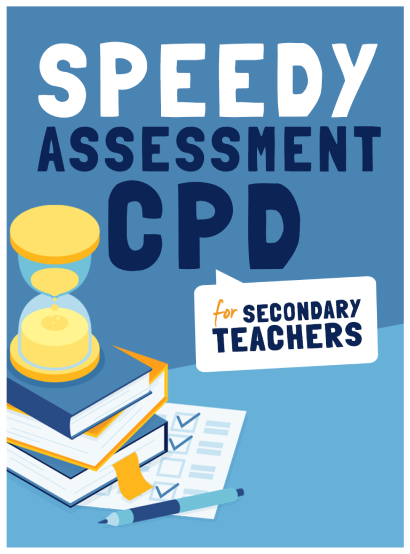Secondary feedback – The best assessment diet is little and often

Feedback should be given one small bit at a time, suggests Alex Quigley…

- by Teachwire

So, how were your summer holidays? Wherever you were, I suspect the itinerary will have featured long, leisurely lunches, tasty treats and, quite probably, a relaxing tipple or two to boot. Ask any teacher about their vacation eating habits and they are likely to tell you stories of excess, followed by the inevitable back-to-school return to restraint – nibbling on salads and healthy snacks with the mantra ‘little and often’ ringing in our ears.
Such common sense is often drowned out by our more powerful urges, but it is sage advice that we can apply to all areas of our lives – even our work, and that of our pupils, in the classroom. Indeed, it may prove one of the secrets to improving students’ learning.
Too much to swallow
When we consider improving students’ learning, and seeing them succeed in school, our minds quickly move to examinations. The stresses and pressures that attend such tests are obvious, and the response from many schools is to have their young people undertake lots and lots of mock examinations, in order to prepare them for the ‘real thing’.
Though there are clear gains to be made by practising with a mock examination, our over-reliance on them as a tool for learning is problematic. It is tantamount to eating a whole cake in one go, rather than a slice.
So, what would prove a better diet of assessment? I am an English teacher, so let’s take an example from my subject. I want my students to write good essays in their GCSE exams.
Writing an essay is a very complex task. It could, for any one piece of work, require the ability to synthesise evidence from throughout a text; link to the social context; use and analyse lots of complex academic words; write about characters, plot, themes, structure, audience, and more.
And yet in the past, I have had learners trying to write essays just a few weeks into their GCSE course. Naturally, they struggle and flounder. My feedback is extensive and, if I am not careful, potentially overloading them. So instead, now I am working on more ‘little and often’ diagnostic assessments. We often ignore tools like quizzes because they don’t feel as ‘hard’ or as authentic as a ‘proper’ exam question. But what if they’re the best formative assessment?
Digestible options
Instead of doing an essay in English, here is just a sample of alternative, but potentially far more useful, diagnostic assessments, that are ‘little’. Many of these could be reliably done as a peer assessment (PA) or self-assessment (SA) task – thereby saving the precious workload of the teacher, too:
Cumulative quizzing
Consolidate the core knowledge of a topic with repeating quizzing, effectively overlearning, so that students can instantly apply their knowledge when applied to the ‘big’ assessment.
Vocabulary testing
It may appear too narrow and ineffective, but in fact, the secure knowledge of relatively few subject specific terms can prove essential for student success. Check it.
Graphic organisers
From timelines, event maps, Venn diagrams, mind-maps, and ‘Diamond 9’ graphic organisers, there is a wealth of what looks like the typical stuff of a lesson, but actually proves an excellent diagnostic and formative assessment for students and teachers.
Planning exemplars
Rather than set an exam essay, as discussed, instead aim to assess an essay plan, or mind-map. This assessment is ‘little’ enough to do ‘often’, but it actually proves a good diagnostic tool for the teacher about gaps in students’ knowledge and understanding.
As I head back to school after the long summer break, I have to confess that once again, I’ve failed to stick to ‘little and often’ with regard to holiday treats – but I will certainly aim to do better when it comes to assessing my students this year.
For more information on Alex Quigley visit theconfidentteacher.com or follow @HuntingEnglish.











